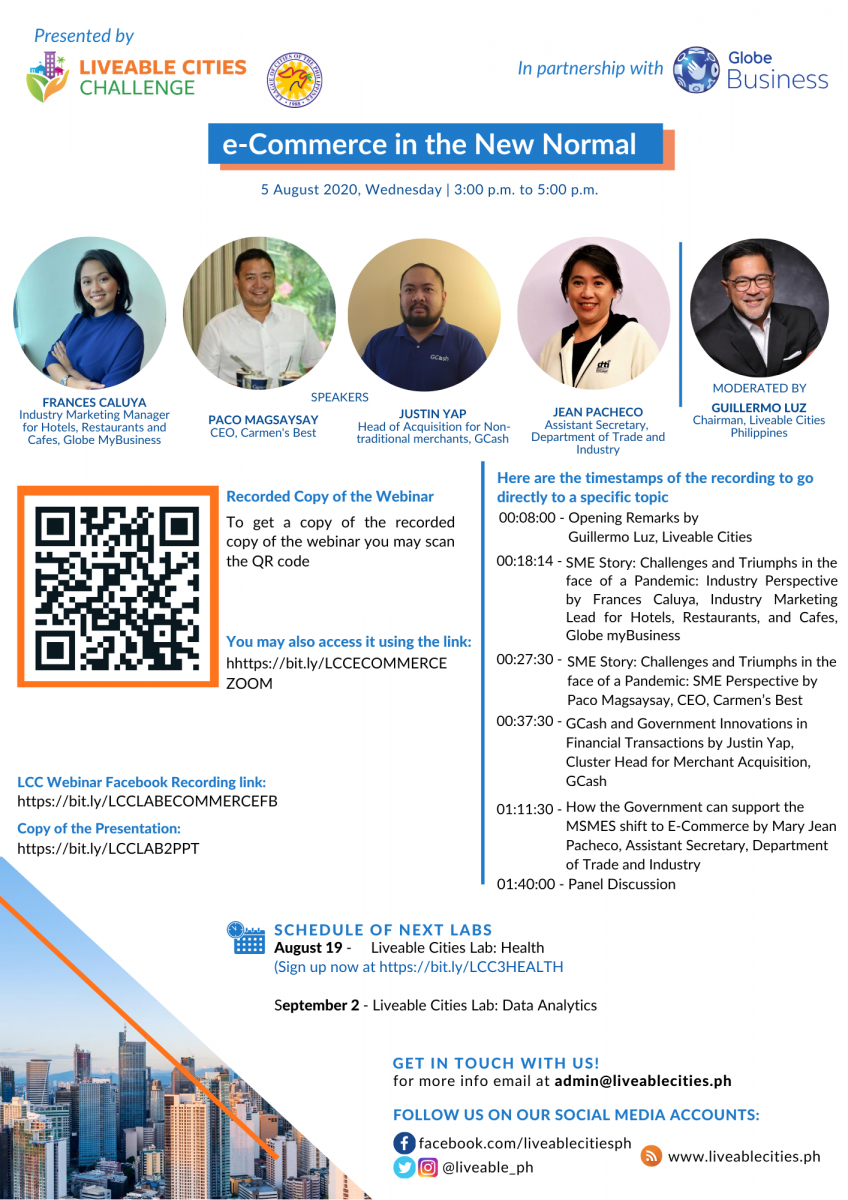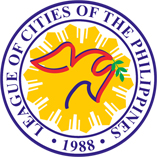Liveable cities
With the need to pivot to the new normal, Local Government Units (LGUs) are encouraged to boost their e-commerce for the convenience and safety of their constituents and to help SMEs in their online business.
In the recent Liveable Cities Challenge (LCC) Webinar Series: E-Commerce in the New Normal, Frances Caluya, Globe Industry Marketing Manager for Hotels, Restaurants and Cafes, Globe MyBusiness, said the pandemic has spurred consumers to rely more heavily on online purchases and services. Recent statistics show that due to COVID-19, 23% of the Philippine population is spending more time shopping online.
Caluya says it's about time the LGUs maximize e-commerce, to help their constituents, and to support SMEs by ensuring that connectivity and access to the internet are present.
“Now is the right time to invest in electronic commerce (e-commerce) in the Philippines. We should harness the power of the internet because selling online now means reaching more people. And reaching more people, without the risks of the old ways in selling products or services, means more opportunities for SMEs to grow and thrive,” Caluya explained.
Caluya added that more establishments and retail shops are now using the internet to sell and to survive the economic downside of the pandemic. The demand for online services has increased. 91% of online Filipinos have visited an online retail store. Of this number, 71% have bought a product online.
Before the onset of the pandemic, only 2% of SMEs in the country sold online. Worldwide, e-commerce sales are expected to increase from $1B in 2019 to $5-6B by 2025.
The Department of Trade and Industry (DTI) likewise recognized the sudden increase of activities in e-commerce in the country. DTI Asec. Jean Pacheco acknowledged the contributions of Globe and GCash in making this a reality especially that the economy is among the many sectors hit by the pandemic.
“E-commerce is here to increase accessibility. You don’t have to be physically present and you can do business with anyone, anywhere at any time to sell your products. Even if you are outside the Philippines, Pacheco added.
Pacheco assured that the government and the DTI want to promote e-commerce so that there will be more merchants, and small-medium enterprises which will take advantage of the new technology especially during the pandemic.
Justin Yap, Head of Acquisition for Non-Traditional Merchants of GCash, said LGUs can improve their services in so many ways by using the GCash app. He cited the example of the challenge being imposed by physical distancing.
“By using the app, people can register their businesses through their mobile phone in just a matter of 8 minutes instead of waiting in line and run the risk of contracting the disease. It is not only a platform but a way for business and the LGUs to rethink their current approach in handling their needs. How will they pivot to the new normal?,” Yap said.
GCash is currently the number one e-Wallet provider in the Philippines with at least 23 million customers and 75,000 QR merchants. Downloading the app is free of charge. Aside from ease of doing business, using GCash likewise promotes transparency and minimizes red tape and corruption in LGUs dealings with their constituents. It is also a good way to avoid contracting COVID-19 because a user doesn’t need to physically touch paper bills that might be contaminated with the deadly virus.
For his part, Paco Magsaysay, CEO of Carmen’s Best, recognized the help of Globe and GCash in paving the way towards doing business online that enables even the ordinary entrepreneurs to have a fighting chance in these trying times.
“We are lucky that there are a lot of options ongoing on the e-Commerce platform. We have chosen to work with 0917 Ventures of Globe to help us set up our e-Store or e-Commerce store. The great thing about it is it ties in logistics for our e-Store with Globe. For the ice cream business, logistics is very critical because our products have to be frozen all the time,” Magsaysay said.
Hosted and moderated by Bill Luz, chair of the Liveable Cities Challenge, the second session of the eight part LCC Webinar Series drew the participation of close to 400 attendees including 14 mayors, one Vice Governor and representatives of 66 cities and municipalities all over the country.












